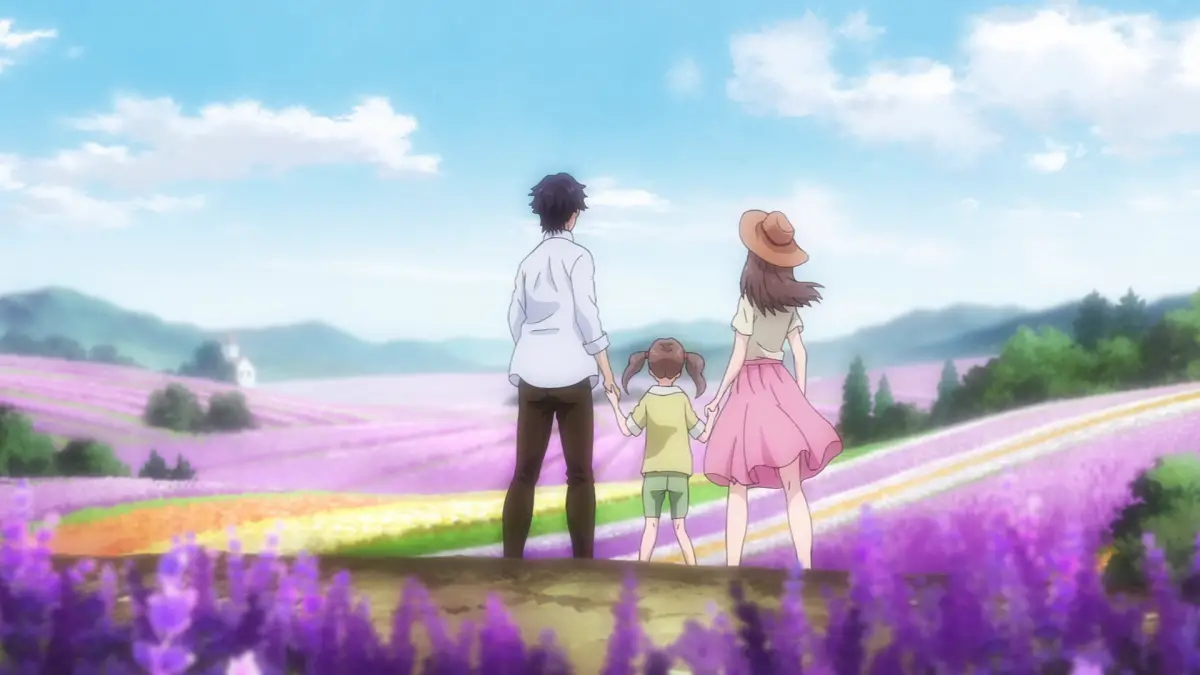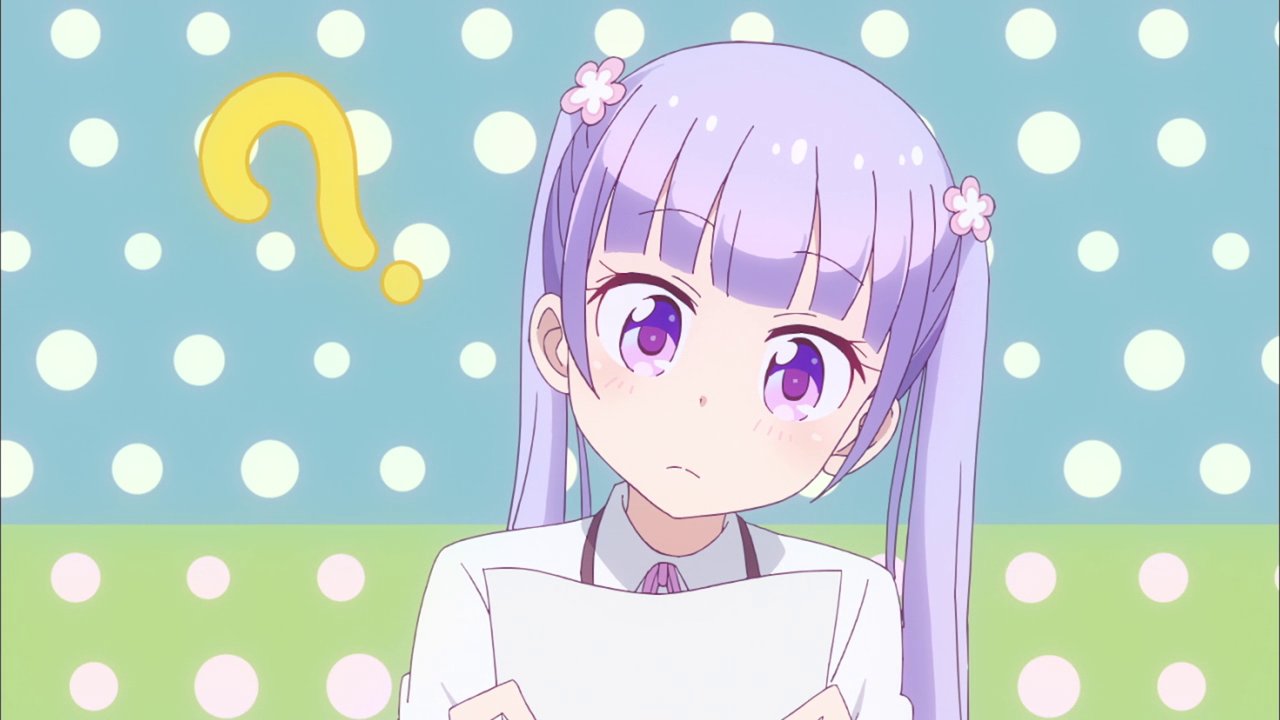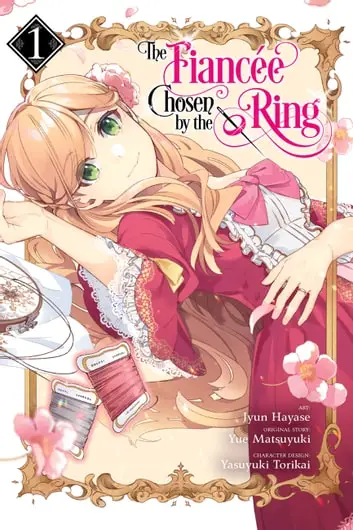One day after school, Aoto Endo and Shihono Kobayashi become gods. One minute they’re playing Kobayashi’s beloved otome game Love Me Magically! (Magikoi), fangirl-and-boying over the tsundere villainess Lieselotte, and the next, they are being hailed as gods by the in-game male lead, Crown Prince Sieg, who can suddenly hear their voices. Fun premise for a series, right? But that’s not all it is: it actually gets at the heart of the gospel and what scripture teaches us, not just about who God is, but how he is too—his attitude, demeanor, and posture toward us. And it may just be that God is an otaku at heart.
Full-On Engagement
The first thing that stands out about Endo and Kobayashi is their commitment. They are engaged wholeheartedly with the lives of the game’s cast, absorbed by every detail of what Liese, Sieg, Fiene, and the rest do and say (or fail to say, in Liese’s case!). They are not aloof or distant, neither are they easily distracted or disinterested. They are fully present. They lean into the game, sitting on the edge of their seats more often than not. They even plan their summer break around sessions with Magikoi, and when school starts up again, they use lunch breaks to put their heads together and figure out how to ensure the best possible outcome for the characters (especially Lieselotte!), even if it means pioneering a new route somehow and making a way where there’s never been one before. (Sound familiar?)
Now picture this: Scripture says that God looks down over us from heaven, with one translation describing him as “bending over heaven’s balcony,” leaning in toward us. He’s on the edge of his seat! God reaches into our world, interacting with us. He is engaged in the details: our every breath, our every tear, our every measure of joy. Like Endo and Kobayashi, he is present—only more so. He is committed. And he is fully invested in seeing the best possible outcome for his creation, for each one of us, to the point of paying the ultimate price himself.


Radical Enthusiasm
There’s more. It’s not just out of duty or a sense of responsibility that Endo and Kobayashi dedicate so much time, care, and effort to Magikoi and its characters. They do it by choice. In fact, they are over the moon about it! They love every aspect of the experience and are filled with excitement at being a part of Liese’s story, and Sieg’s and Fiene’s and Baldur’s too. They want to be there, and it shows in their every word and deed as they celebrate with the characters, shed the occasional tear, and carry their burdens with them as well.
And you know what? God is the same! He sings and dances over us, not just on special occasions, but every single day. When you wake up, he is there, waiting for you with a full heart and fresh start. When you go to work or school, he is there with you always, every step of the way. When you get home, he delights in sharing a meal or a conversation with you. Unlike Endo and Kobayashi who are limited to vocal interjections, our God is able to express his heart in manifold ways: he made this world beautiful because he wanted you to experience beauty; he made humanity capable of understanding humor because he wanted to make you laugh; he filled your heart with dreams and passions and interests and gave you that one weird talent because he wanted to make life interesting for you and to share with you the wonder that comes from a life fully lived. God’s enthusiasm over your existence is not a one-off—it’s a daily reality. It’s why he went to such great lengths to reconnect with you and me and every one of his lost children.
Open Lines of Communication
The next most noticeable thing about Endo and Kobayashi is that they are always communicating (they are members of the broadcasting club, after all!). Most of the time, this takes the form of excitable running commentary, with Endo doing the play-by-play and Kobayashi adding the analysis. Crown Prince Sieg, who is privy to this audible whirlwind, doesn’t need to beg, bribe or impress his gods for them to take notice and speak with him. If he attunes his ear, he can hear them pretty much anytime.
But not always. As revealed in episode 6, there are times when Sieg’s gods remain silent. When Liese is panicking and faints, they do not tell him what to do. And yet, even in their silence they are communicating with the Crown Prince, and their message is this: pause, reflect, and take hold of what you have been learning as you’ve listened to our voices. Their silence is an answer in and of itself, an invitation for Sieg to search his own heart. You see, throughout the first half of the series, Endo and Kobayashi wisely withhold commentary in one key area: they do not tell Sieg the big picture, nor do they share with him what they hope for him and his destiny (to love Liese and thereby save the world!). They know the plans they have for him, to bless him and give him a future full of hope, but they do not share the details with him—not yet. They leave it to Sieg to discover his heart for himself, so that he might make a choice to love or not to love of his own free will. They are silent so that he might take ownership of all that their divine conversation has awakened in him.
And Sieg needs the silence in that key moment of crisis as much as he needed to hear the voices of his gods at other times. He needs the space to ponder, reflect, and then act on the love that has been growing in him for Liese. Endo and Kobayashi withhold information from Sieg not to punish or test him, and certainly not to sucker punch him when he’s down. They do it to give love a chance to grow authentically, organically, at its own pace. Their silence is a way of taking the pressure off of Sieg and removing the high stakes when he most needs that little bit of room to breathe, whether he knows it or not. They are silent because they love him.
This is true of our God too. It isn’t because we haven’t done enough to prove ourselves and excite God’s interest in us that he seems to be silent at times. His silences aren’t a punishment or a test, or the kind of “silent treatment” that we humans can often dish out in our passive-aggressive attempts to manipulate one another. Instead, his silence is most often an invitation to remember what we’ve already heard or to learn to listen in a new way. Our God speaks in many ways—including through the beat of our own hearts—and sometimes we need the time and space to learn to hear anew.

To Save for Life & Love
Now for the most crucial parallel between the gods of Magikoi and the God of the real world, and it has to do with divine purpose. This is not just a game for Endo and Kobayashi. For all their exuberance and excitability, the two are wholly devoted to the serious business of redemption and salvation. They want nothing less than to save Liese. This means not just saving her from death, but also saving her for life. This is why they are determined that Liese be loved by those around her. They are not satisfied with being stans themselves; they also want Sieg, Fiene, and all the rest of the cast to see and love Liese the way that they do, and to recognize that she cares for them too. More than this, Endo and Kobayashi also want Liese to understand for herself how lovable she is, and to learn to receive the love that they are stirring up in others toward her. When Liese condemns herself and speaks hateful things about herself as she struggles to resist the darkness of the Witch of Yore, it breaks Kobayashi’s heart. She is desperate for Liese to cherish herself, and not discount the love of others for her.


Our God is passionate about love—so much so that when Jesus summed up all of the Old Testament, both Law and Prophets alike, he phrased it like this: Love the Lord your God with all your heart, soul, mind and strength, and your neighbor as yourself. These three loves are inseparable, each feeding into and reinforcing the others: love for God, love for others, love for self. It’s a beautiful cycle, rather than a linear formula of cause and effect. There’s no one right place to begin and end in this chain, instead, we need all three. Endo and Kobayashi know this instinctively, because their efforts toward Liese center on flooding her life with these three loves: their own divine love for her, inviting her into relationship; the love of others, which encourages Liese’s own expressions of love in return; and entreaties for her to love herself, to see herself differently, as reflected in the eyes of those who have come to love her. The love of Kobayashi and Endo is overflowing, and what that overflow looks like is their stirring up love in all its forms in order to enrich the life of the one they love. This is what God’s love looks like too.
God is not playing a game with us. He’s not toying with us or using us to level himself up or entertain himself. He is even more dedicated to his redemptive, saving mission than any anime hero. But most importantly, he’s in this for one vital reason: to love us so well, and surround us with such love that we get caught up irresistibly in the flow until it is far easier to grow in love than it is to remain cut off like a tsundere villainess. He’s in this to save us, and to save us for life.
God is sitting on the edge of his seat, leaning in to hear your answer: are you here for it too?

Endo & Kobayashi Live! The Latest on Tsundere Villainess Lieselotte is available for streaming on HiDIVE.










Leave a Reply